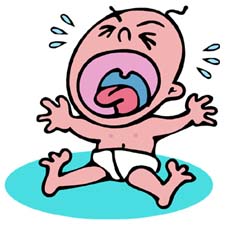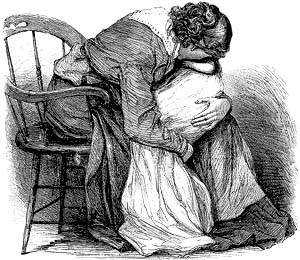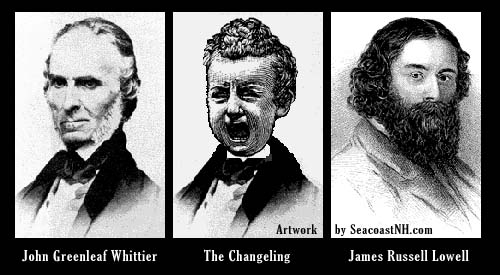|
FRESH STUFF DAILY |
|
|
||
|
|
||
|
|
||
|
SEE ALL SIGNED BOOKS by J. Dennis Robinson click here |
||
Page 1 of 3
TWO VERSIONS OF "THE CHANGELEING" READ: Whittier's version
The legend of the changeling was popular in colonial New England where superstition was an early way to understand confusing occurrences. How, for example, could a gentle baby suddenly become a squalling little monster? The answer -- it was really an imp, the offspring of a devil or supernatural being. Stories of "exchanged children" persist from the earliest human legends in most cultures up into belief in fairy stories as recently as the 20th century. In some religious interpretations the changeling is a piece of flesh with no heart or soul. In Whittier's poem, the distraught mother plans to throw the devilish infant into the fireplace. German theologian Martin Luther believed infanticide was a totally appropriate means of disposing of an exchanged child. Grimm's Fairy Tales suggest plenty of harsh treatment for changelings when they appear on Earth. Folklorist DL Ashliman suggests a connection between severe cases of early child abuse and child murder and the superstitious belief in the changeling tradition. The legends provided an acceptable excuse, in some societies, for mistreatment or murder of uncontrollable or handicapped children in a harsher age. Since male babies, who could grow to provide physical labor were more "valuable," male infants in some cultures were dressed in female clothing to trick the supernatural forces. Mothers were warned to watch their babies carefully for at least six weeks to avoid an exchange, and talismans from crucifixes to bibles were left on the sleeping baby to ward off theft.
Whittier's poem adds extra twists. His presentation of the mother seems also to imply that her own psychological state may be the issue. A prayer from her husband appears to break the spell, be it depression or witchery. When the mother snaps out of her mood, she regrets, it appears, having blamed Goody Cole for bewitching her child. The husband then rides to Ipswich jail to repeal the sentence on the elderly Hampton woman. Does Whittier intend us to think that Goody replaced the baby with a devilish imp child? Or is he wondering about the power of the human psyche? His approach to Goody's curse in "Wreck of the Rivermouth" seems equally ambiguous. Whittier's friend James Russell Lowell (1819-1891) focuses his version of "The Changeling" on angels rather then witches. Unlike the more dramatic Whittier poem that has a double happy ending, Lowell's lost child appears gone forever, stolen by angels and replaced by a soulless imp. Lowell was another of the literary elite from Cambridge, Mass who came to visit Celia Thaxter at her summer salon on Appledore Island. A man of letters and Harvard professor, Lowell was known as a romantic poet, a humorist, critic, and editor of Atlantic Monthly and author of 50 abolitionist articles. Lowell retained a fascination in the occult and wrote an extensive essay on witchcraft in his 1871 collected essays "Among My Books." -- READ: Whittier in NH OUTSIDE LINK: CONTINUE To Read Both Versions
Please visit these SeacoastNH.com ad partners.
News about Portsmouth from Fosters.com |
| Friday, April 19, 2024 |


|
Copyright ® 1996-2020 SeacoastNH.com. All rights reserved. Privacy Statement
Site maintained by ad-cetera graphics






 As he did with his poem "
As he did with his poem "















